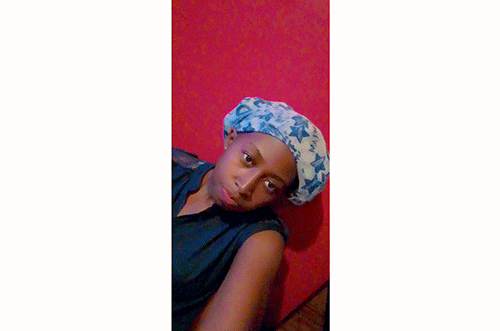Sarah Anghuwo
“I have realised that it is important to start in your country, to gain recognition there and to build a market,” Sharon van Rooi.
Art possesses an extraordinary ability to transcend boundaries, cultures and languages. It speaks to the depths of our souls, evoking emotions that words alone cannot adequately express. Its power lies in challenging societal norms, igniting meaningful conversations and inspiring transformative change within our communities. Art serves as a profound reflection of our shared humanity, offering a mirror through which we can perceive ourselves and our world in unique and enlightening ways. In a democratic nation like Namibia, where various ministries are entrusted with serving the citizens of Namibia, it is disheartening to witness the arts and cultural industries being deemed unimportant while other sectors take priority. The Ministry of Education Arts and Culture has the mandate to “Educate and train for sustainable national development and promote arts and culture”. Their vision is “To be the ministry of excellence in proving quality inclusive education and promoting arts and culture for the prosperity of the nation”. Lastly, their mission is “To provide accessible, equitable and inclusive quality education for a tolerant skilled, productive and competitive nation, to promote and preserve arts and culture for nationhood and unity in diversity”. Regrettably, the recently unveiled national budget for 23/24 allocated a mere 0.28125% of the N$16.8 billion to the arts and cultural department, while the educational sub-division secured a staggering 99.71875%.
These figures underscore the inadequate consideration given to the arts within our nation, a grievous oversight given Namibia’s rich historical heritage and the artistic talents its citizens possess. As a burgeoning advocate for arts, I have identified several critical issues that warrant rectification on this journey. These issues include the lack of parental encouragement caused by guardians witnessing the government’s declining interest in the enhancement of the arts and cultural industry, thereby dissuading their children from pursuing creative aspirations due to various negative factors.
Moreover, insufficient funding from the national budget, an identity crisis, meaning that the Namibian nation seems to drift away from its roots and adopting cultural behaviours from other nations with that identification the future generations will be deprived of knowing what we stood and fought for through art, unrecognised facilities, meaning not all art and cultural facilities are not being availed or not being visible to the public due apathetic behaviour from stakeholders; outdated websites, meaning that a call for a dire need to address digital literacy is a must among creative organisation; decline in educators, resulting in a lack of access to art and cultural information; apathy among parents and guardians; poor implementation of ideas due to a lack of understanding of Namibia’s unique artistic heritage, as well as a decline in performance measurement within public institutions, leaving arts and cultural sectors unchecked in terms of their adherence to institutional codes of conduct and acts. These pressing challenges necessitate immediate attention and reform. It is high time that our nation recognises the significance of nurturing and celebrating our artistic and cultural tapestry. By investing in arts, we can unlock the full potential of our citizens, foster creativity and innovation, as well as propel Namibia towards a future where our unique identity shines brightly. Let us embrace our artistic heritage and cultivate an environment where arts flourish, as they are a testament to our collective spirit, and they serve as a beacon of unity in our diverse nation.
*Sarah Anghuwo is an advocate for the arts Twitter – @The_0veride; Instagram – sarah_anghuwo Email- overide.th3.overiders@gmail.com



